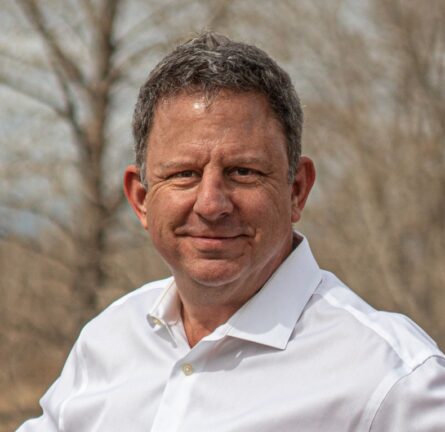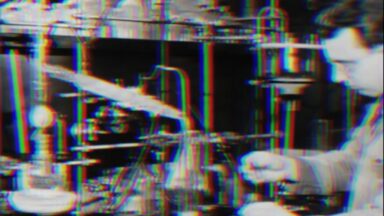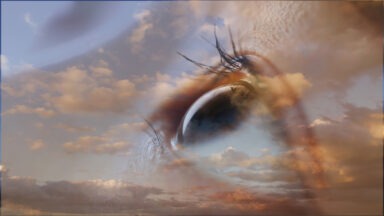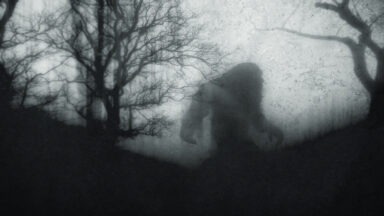Manly P. Hall: A Prolific Teacher of Esoteric Traditions

Born in Peterborough, Canada to a Rosicrucian-Chiropractor Mom and a dentist Dad, Manly Palmer Hall moved to the United States at a young age. Armed with an obsession for mysticism, Manly became a prolific writer of esoteric books. After launching himself as an ordained minister of The Church of the People in Los Angeles, Manly P. Hall grew to become one of the century’s most active teachers of ancient philosophies and lost traditions.
In 1928, Hall wrote, “The Secret Teachings of All Ages – An Encyclopedia Outline of Masonic, Hermetic, Qabbalistic and Rosicrucian Symbolic Philosophy.” Weighing over 15 pounds, the volume was often referred to as “The Great Book.” This work, which covers a variety of philosophical, theosophical and mathematical topics, sold for over $70, which equates to $1043 in today’s money.
“To live in the world without becoming aware of the meaning of the world is like wandering about in a great library without touching the books.”
― Manly P. Hall, The Secret Teaching of All Ages
George Barron, curator of the De Young Museum at the time, said, “Into this volume has been compressed the quintessence of a colossal learning. It is a living human document, pulsating with the mental and spiritual vibrations of a profound thinker who takes knowledge for his province and reduces whole libraries to a single tome.”
Hall wrote his opus because he was dedicated to reporting on, “the proposition that, concealed within the emblematic figures, allegories and rituals of the ancients, is a secret doctrine concerning the inner mysteries of life, which doctrine has been preserved in toto among a small band of initiated minds.“
Who was Manly P. Hall? He’s most likely the reason that esoteric writings and teachings have exponentially grown in popularity over the past 20 years. Without his longstanding commitment to inviting these ancient teachings into public consciousness, we might have lost the most essential truths of the ages.
With a career that spanned 70 years, Mr. Hall gave over eight thousand lectures, including two at Carnegie Hall in New York City. At Carnegie, Manly P. Hall’s lectures were titled “The Secret Destiny of America” (1942) and “Plato’s Prophecy of Worldwide Democracy” (1945). Over time, Manly published over 150 esoteric books, essays, treatises, and pamphlets, which covered a wide berth of topics, including:
- The Rosicrucians
- Metaphysics
- The Laws of Karma
- The Power of Women
- Palmistry
- Tibetan Art
- The Secret Destiny of America
“Experiences are the chemicals of life with which the philosopher experiments”
— Manly P. Hall
The Philosophical Research Society
In 1934, Manly P. Hall founded the nonprofit organization known as “The Philosophical Research Society” (PRS) in California. Still in existence, PRS is dedicated to the study of religion, mythology, metaphysics, and the occult. It houses over 50,000 volumes, including all of the books authored by Hall. In 1995, to keep their unprecedented library afloat, PRS sold their world-leading book collections on alchemy, esoterica, and hermetica to the Getty Research Institute.
Manly felt strongly about his organization, saying, “Education at any age is a lifelong dedication to the improvement of character, and the enlargement of understanding. There is no reason why PRS should not be remembered like Plato’s Academy, but if it is to continue, the society must make use of the most advanced technology available. I now envision a university of the mind, and think that through proper organization we can bring this message of enlightened living to a much greater audience throughout the world.”
The Philosophical Research Society has influenced many of today's thinkers and teachers, including several U.S. Presidents and other world leaders.
Manly P. Hall Quotes
Here is a handful of quotes from one of the most prolific writers of all time:
— “Though the modern world may know a million secrets, the ancient world knew one – and that was greater than the million; for the million secrets breed death, disaster, sorrow, selfishness, lust, and avarice, but the one secret confers life, light, and truth.”
— “Wisdom fears no thing, but still bows humbly to its own source, with its deeper understanding, loves all things, for it has seen the beauty, the tenderness, and the sweetness which underlie Life’s mystery.”
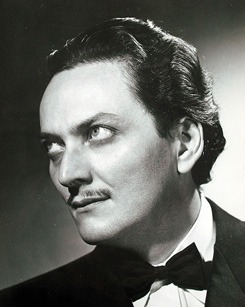
Manly P. Hall
— “Fascinated by the glitter of gain, man gazes at the Medusa-like face of greed and stands petrified.”
— “Plato defined good as threefold in character: good in the soul, expressed through the virtues; good in the body, expressed through the symmetry and endurance of the parts; and good in the external world, expressed through social position and companionship.”
— “A little philosophy inclineth man’s mind to atheism; but depth in philosophy bringeth men’s minds about to religion.”
— “The pineal gland is a link between the consciousness of man and the invisible worlds of Nature. Whenever the arc of the pituitary body contacts this gland there are flashes of temporary clairvoyance, but the process of making these two work together consistently is one requiring not only years bur lives of consecration and special physiological and biological training. This third eye is the Cyclopean eye of the ancients, for it was an organ of conscious vision long before the physical eyes were formed, although vision was a sense of cognition rather than sight in those ancient days.”
— “It was apparent that materialism was in complete control of the economic structure, the final objective of which was for the individual to become part of a system providing an economic security at the expense of the human soul, mind, and body.”
— “When the human race learns to read the language of symbolism, a great veil will fall from the eyes of men. They shall then know truth and, more than that, they shall realize that from the beginning truth has been in the world unrecognized, save by a small but gradually increasing number appointed by the Lords of the Dawn as ministers to the needs of human creatures struggling co regain their consciousness of divinity.”
— “Ignorance fears all things, falling, terror-stricken before the passing wind. Superstition stands as the monument to ignorance, and before it kneel all who realize their own weakness who see in all things the strength they do not possess”
Manly P. Hall Books
Manly was prolific, not only in his lectures but also in the writing of books. As his publications became more popular, Manly was able to enroll key benefactors Carolyn Lloyd and her daughter Estelle, whose family controlled oil fields in California. Carolyn funded Hall’s travels so that he could acquire ancient literature from around the world and begin sharing it with his followers.
At the start of his writing journey, Manly published a handful of small pamphlets including, “The Breastplate of the High Priest” and “Wands and Serpents.” He went on to write these robust and detailed manuals:
- The Lost Keys of Freemasonry
- The Ways of the Lonely Ones
- Nordic, Gothic, and Finnish Rites
- The Sages of China
- Pythagorean Mathematics
- The Zodiac and its Symbols
- Mystic Christianity
- How to Understand Your Bible
- Venerated Teachers of the Jains, Sikhs, and Parsis
- Black and White Magic
- The Mystical Christ
- Rosicrucians and Magister Christoph Schlegel
- First Principles of Philosophy
- Francis Bacon: The Concealed Poet
- Initiation of Plato
- The Inner Life of Minerals, Plants, and Animals
- Koyasan: Sanctuary of Esoteric Buddhism
- Krishna and the Battle of Kurukshetra
- Neoplatonism: Theology for Wanderers in the New Millennium
- The Symbolism of Light and Color
- The White Bird of Tao
- Visions and Metaphysical Experiences
Teachers, Wives, and Death
Manly had few known teachers, although he loved reading the works of H. P. Blavatsky. Madame Helena Blavatsky's work centered around theosophy, a mystical, philosophical system. With regard for Miss Blavatsky, Manly once said, “The original work of H.P Blavatsky stands unique, even within the field of related literature; and as a result of the years, which have passed, since 1888, when the Volumes were first published, we are aware that her own peculiar and particular insight, still makes these works unique, remarkable and valuable.”
While Manly’s first marriage was with Fay B. deRavenne, who later committed suicide, his second wife, Marie Bauer Hall, was born in Germany and lived a full life from 1904-2005. At an early age, Marie joined the convent to learn how to be a teacher. At 18, she ventured to the United States and married George Bauer. After raising two children with George, in 1950, she married Manly P. Hall.
“It is for this reason that the candidate assumes the vows of celibacy, for the close connection existing in the advanced disciple between the brain and the reproductive system necessitates an absolute conservation of all life energies.”
— Manly P. Hall
Marie Bauer Hall’s life work, which she was known to defend, was loving and supporting Manly P. Hall, and excavating the grounds of the Bruton Church and the elusive Bruton Vault in Williamsburg, VA. She hoped to unearth the secrets of Shakespeare, Francis Bacon, the Illuminati, and The Seventh Seal. In 1938, the Rockefeller Foundation funded her excavation to unearth the original foundation of the 1676 Bruton Church. Despite her team’s worthy attempt and others throughout her life, Marie never found her treasure.
Manly P. Hall died in 1990 at the age of 89. He succumbed to the hands of his greedy, thieving assistant, Daniel Fritz. While the evil conman did not abscond with Manly’s vast riches and library, he also did not serve prison time. It was an unkind and unjust conclusion to one of the most generous teachers of our time.
Manly P. Hall’s work inspired millions of people to seek their inner truths and expand their understandings of the universe. His work continues to be a beacon of light for those who seek it. When Manly died, he was a 33° Mason, the highest honor bestowed by The Supreme Council of the Scottish Rite.
“The esoteric system is all based upon the ultimate motive. Ultimate motive is the service of truth itself, a complete dedication to the service of the realities of existence.”
— Manly P. Hall
Baba Vanga; Bulgarian Mystic's Predictions Parallel Nostradamus'

The world is familiar with Nostradamus, Edgar Cayce, Madame Helena Blavatsky, and many others defined as mystics, seers, and clairvoyants who through their special talents have predicted important moments in global and personal history. Yet another name can be added to this list who was one of the most revered and seminal figure in the world of mystics, specifically in terms of 20th century political and natural occurrences; a blind woman who spent most of her life in the remote Kozhuh mountains of Bulgaria – Vangeliya Pandeva Gushterova, otherwise known as “Baba Vanga.”
For many, she is considered to be one of the most powerful clairvoyants, as well as a gifted herbalist and healer. Who is this mysterious mystic? How have her predictions impacted our world and we see our future? One path to understanding her mysterious influence is to explore our eternal fascination with future-telling and the paranormal.

